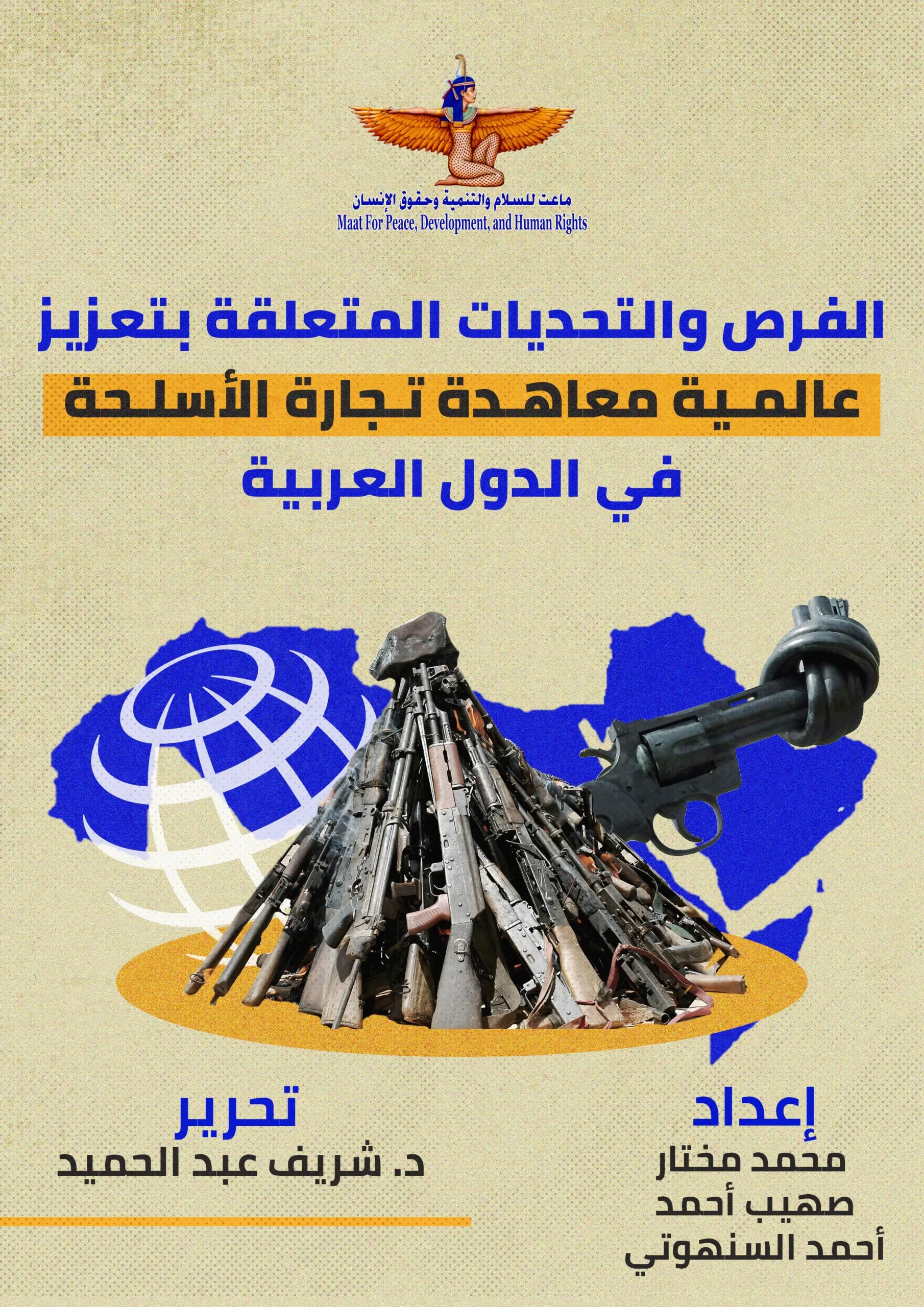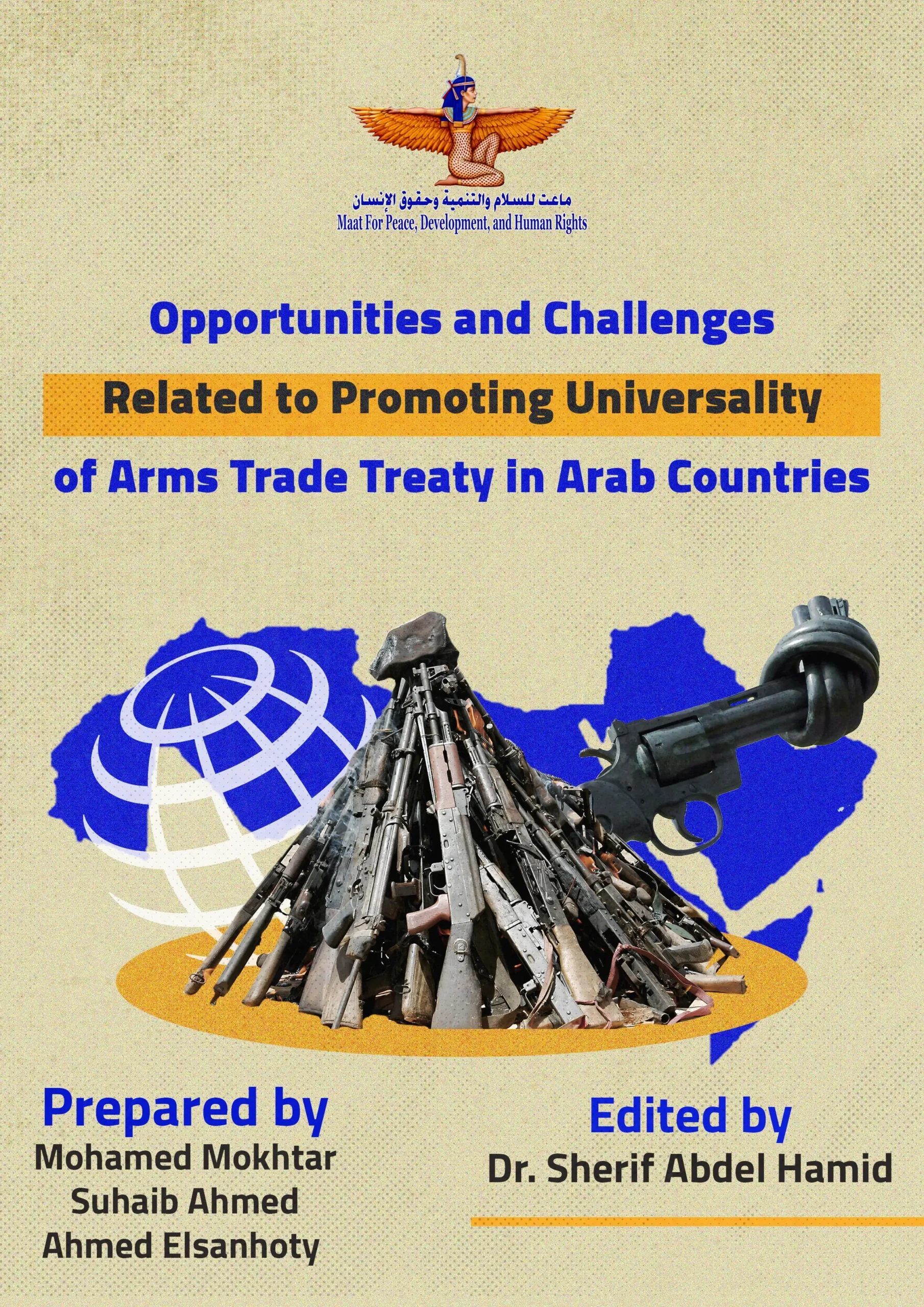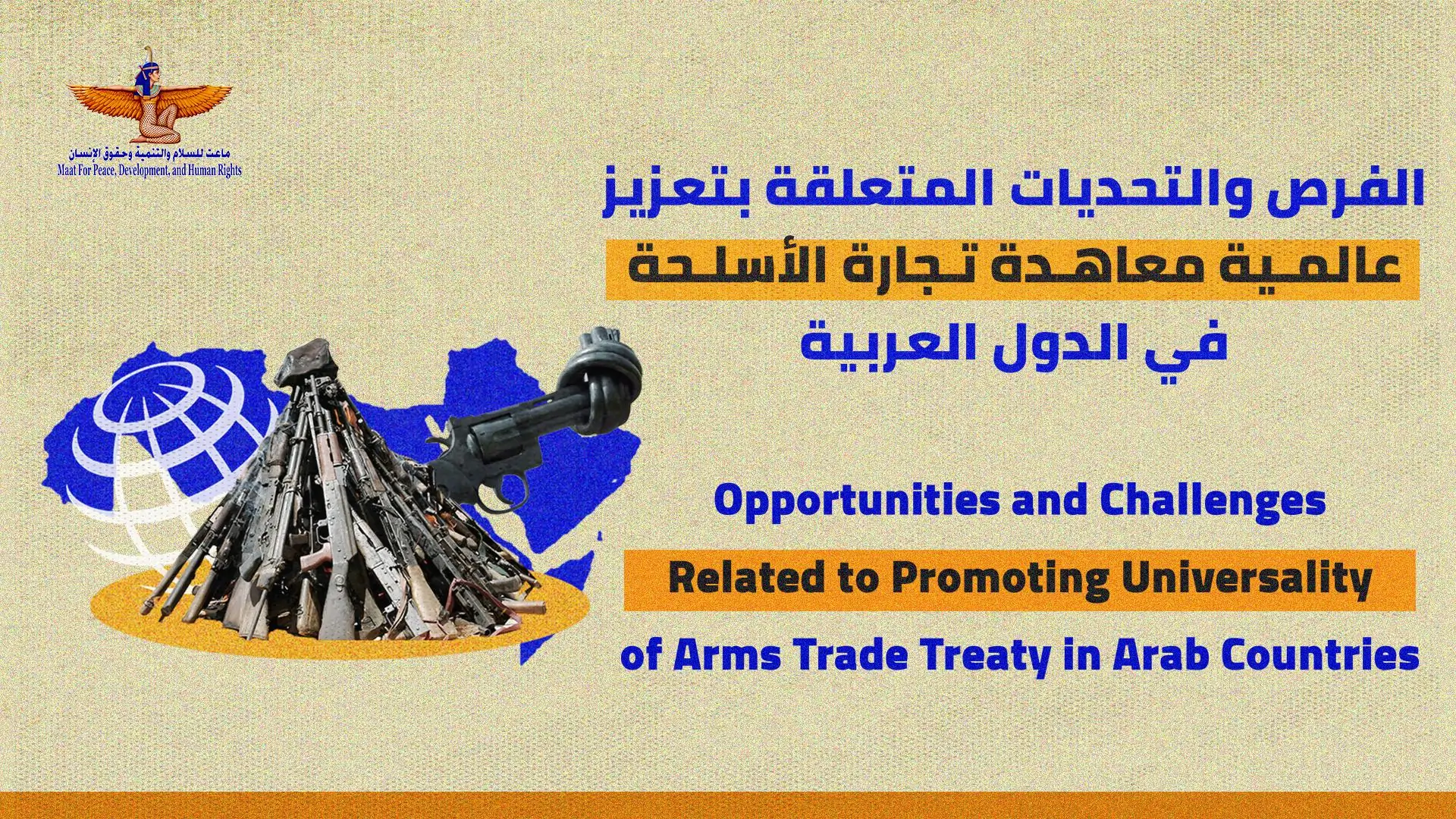Maat Issues a New Study Monitoring Opportunities and Challenges Facing Arab Countries in Joining Arms Trade Treaty
Okeil: Arab countries should reconsider joining ATT
Mukhtar: There are many benefits for Arab countries in joining ATT
Maat for Peace, Development and Human Rights issued a new study entitled "Opportunities and Challenges Related to Promoting Universality of Arms Trade Treaty in Arab Countries" in which it highlighted the need to promote universality of ATT in the Arab region, and identified the obstacles and challenges facing Arab countries that have not yet become states parties to ATT. The study provided an overview of the status of ATT in the Arab region, the reasons why some Arab countries have not joined it, and reviewed the urgent motives for the need for the remaining Arab countries to join ATT, while setting out a set of recommendations that must be taken to overcome these challenges, and reduce the negative humanitarian impacts resulting from the irresponsible arms trade in the Arab region.
The study confirmed that the Arab region is going through many serious security challenges that threaten regional stability and security. Ten years after the adoption of ATT, countless people are suffering from human suffering as a result of illegal arms transfers that facilitate the commission of serious human rights violations that amount to genocide and crimes against humanity. It called for the urgent accession of Arab countries to ATT to limit the irresponsible arms trade in the region, which puts the lives of citizens on the brink of the abyss.
In this context, Ayman Okeil, a human rights expert and head of the Maat, said that innocent people are dying in the Arab region due to the irresponsible arms trade in the Arab region, noting that we are in exceptional times that require exceptional responses, in light of the ongoing hostilities due to the flow of weapons into the wrong hands, which has resulted in the deaths of thousands, the displacement of millions and the spread of humanitarian crises. This often occurs in places far from the spotlight. The horrific security situation and the state of security and political instability due to the chaos of the spread of weapons in many Arab countries such as Libya, Yemen, Syria, Iraq, Lebanon and Sudan must be put to an end.
Okeil added that he is certain that this report will be the first step towards strengthening the regulation of the arms trade in the Arab region to ensure that weapons reach the right hands, to reduce human suffering by preventing the transfer or diversion of weapons to areas affected by armed conflicts and violence, to warlords, human rights violators, terrorists and criminal organizations. He called on Arab countries to reconsider joining ATT.
Okeil pointed to a number of challenges that prevent Arab countries from joining ATT, most notably determining the regional political priorities of Arab countries in the field of arms control and disarmament, the spread of armed conflicts and civil wars within and between countries as another challenge, and the fear of Arab countries that ATT will limit their ability to purchase the weapons necessary to maintain their national security, stressing the need for civil society organizations to carry out many advocacy campaigns aimed at raising awareness of the provisions and objectives of ATT.
Mohamed Mokhtar, Director of the International Law Unit at Maat, stressed that there are many basic benefits for Arab countries to join ATT, most notably preventing the transfer of weapons to perpetrators of violations of international humanitarian law, combating their illegal spread in the Arab region, and enhancing transparency and regional cooperation in the trade in conventional arms.

 |
 |
shortlink: https://maatpeace.org/en/?p=43179












